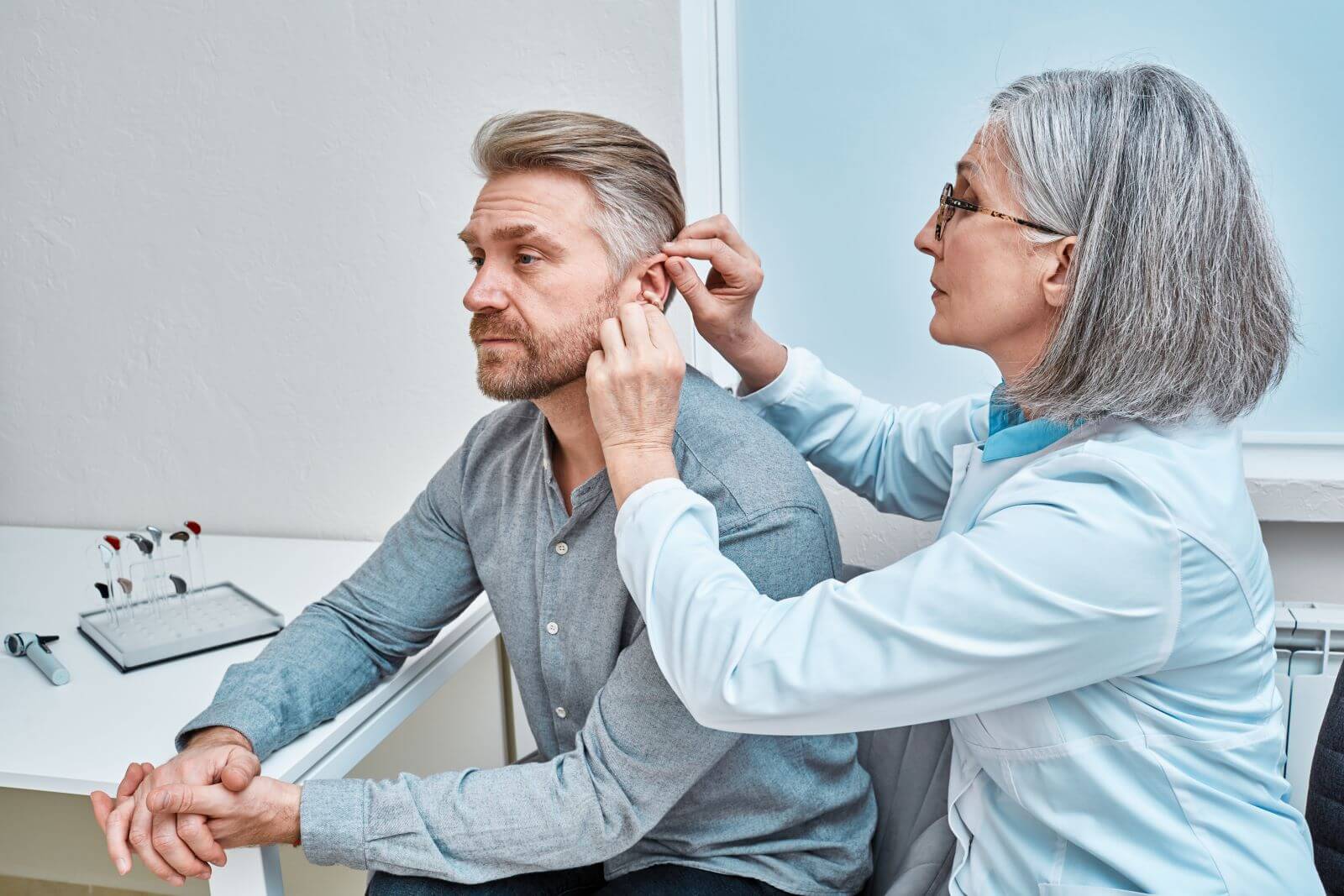
Hearing is one of our most precious senses, yet it’s often taken for granted. We don’t think twice about our hearing until something goes wrong. But the truth is, a hearing screening is just as important for maintaining your overall health as regular eye exams or check-ups with your doctor.
In this blog, we’ll explore why hearing screenings should be a part of your regular health routine and why early detection of hearing loss is crucial for preserving your hearing and well-being.
What is a Hearing Screening?
A hearing screening is a quick and simple test to determine if you may have hearing loss. It involves listening to different sounds and tones at various volumes and pitches and repeating words in quiet and in backgrround noise. This process helps audiologists identify early signs of hearing loss and determine whether further diagnostic testing or treatment is necessary.
Hearing screenings can be performed at various stages of life—from newborns to older adults—and are a key tool in detecting hearing issues early.
Why Are Regular Hearing Screenings Important?
- Early Detection of Hearing Loss
Hearing loss often develops gradually, making it easy to overlook, especially in the early stages. You may not notice subtle changes in your hearing abilities over time, but those around you might. Regular screenings allow audiologists to detect any early signs of hearing loss before it becomes more pronounced, enabling you to take action sooner.
Hearing loss can be caused by a variety of factors, such as aging (presbycusis), exposure to loud noises, genetics, or certain medical conditions. No matter the cause, early detection means you can start interventions, such as using hearing aids or making lifestyle changes, to help preserve your hearing and quality of life.
- Preventing Further Damage
Once hearing loss occurs, it can be difficult to reverse. In some cases, hearing loss can be temporary, especially if caused by an infection or earwax buildup, but in many instances, it’s permanent. Regular screenings help catch problems early, which may prevent further damage.
- Improving Communication and Relationships
Untreated hearing loss can affect your ability to communicate effectively with friends, family, and colleagues. Over time, this can lead to frustration, misunderstandings, and even social isolation. By getting regular hearing screenings, you can identify any hearing challenges before they have a chance to impact your relationships and daily activities. Addressing hearing loss early can improve your social interactions, reduce communication barriers, and help you stay connected with those around you.
- Supporting Cognitive and Mental Health
Did you know that untreated hearing loss is associated with an increased risk of cognitive decline, including dementia and Alzheimer’s disease? Research has shown that hearing loss can strain your brain’s cognitive resources, making it harder to process sounds and retain information. Over time, this may contribute to cognitive decline.
By detecting hearing loss early and taking action, you can reduce the risk of these mental health concerns. Hearing aids, for example, have been shown to help stimulate the brain and improve overall cognitive function by making it easier for you to hear and process sound.
- Hearing Screenings are Quick and Non-Invasive
One of the biggest reasons why many people neglect hearing screenings is the misconception that they are complicated, time-consuming, or uncomfortable. In reality, hearing tests are quick, simple, and completely non-invasive. Most screenings take just a few minutes and can be done during a routine visit to an audiologist.
- Hearing Screenings Are for Everyone, Not Just Seniors
While it’s true that hearing loss is more common as we age, it’s not just seniors who need regular screenings. Anyone—regardless of age—can experience hearing loss. Children, teenagers, and adults can all benefit from regular screenings, particularly those who are exposed to loud environments like concerts, construction sites, or loud music.
For children, early hearing screenings are critical for identifying hearing problems that could affect speech and language development. Detecting hearing loss in the early years can make a big difference in a child’s ability to learn and communicate effectively.
When Should You Get a Hearing Screening?
- At Birth: Newborn hearing screening is standard in most hospitals and should be followed up with additional tests if any issues are identified.
- During Childhood: Hearing screenings are often done at school, but it’s a good idea to schedule one if your child has trouble hearing or understanding instructions.
- In Adulthood: Adults should aim to have a hearing screening every 3 to 5 years, especially if they are exposed to loud noises or notice any signs of hearing difficulty.
- As You Age: After age 60, you should consider annual hearing screenings as part of your regular health check-ups.
Take Action: Schedule Your Hearing Screening Today
Don’t wait until you notice a problem with your hearing. Regular hearing screenings are an important part of taking care of your health, and the sooner hearing issues are detected, the better the outcomes can be.
If you’re due for a hearing test or have concerns about your hearing, reach out to Denison Hearing today. We’re here to help you maintain your hearing health and improve your quality of life with personalized care and treatment options.
Your hearing is worth protecting, and regular screenings are one of the best ways to ensure that you can enjoy the sounds of life for years to come.
